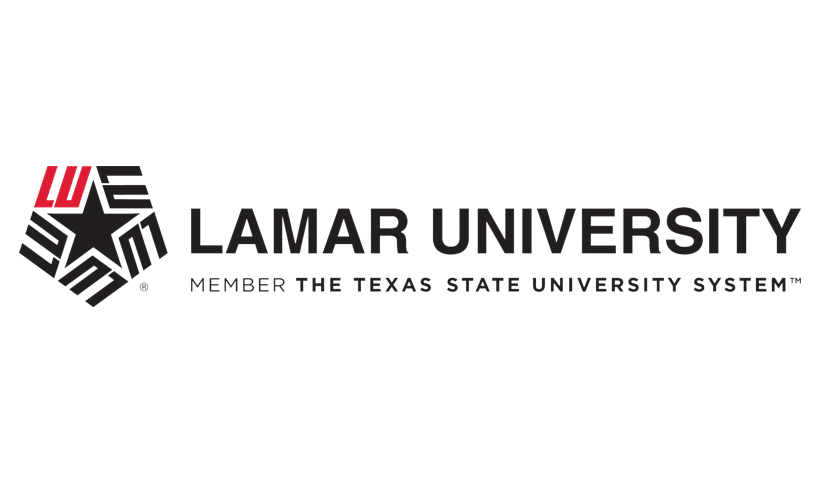Pursuing a career as a licensed counselor is a rewarding path, with the opportunity to make a significant impact on individuals’ lives by supporting their mental health. Having a career in the counseling field requires dedication, both academically and professionally, and a genuine desire to help others navigate their emotions, stressors, and mental health issues. Many aspiring counselors wonder about the timeline and the steps required to become a licensed counselor. Let’s explore these steps in more detail.
 Walden University : MS in Clinical Mental Health Counseling (CACREP Accredited, six specializations to choose from)
Walden University : MS in Clinical Mental Health Counseling (CACREP Accredited, six specializations to choose from) Walden University : MS in School Counseling (CACREP Accredited)
Walden University : MS in School Counseling (CACREP Accredited) Northwestern University : Online MA in Counseling (CACREP Accredited)
Northwestern University : Online MA in Counseling (CACREP Accredited) Northwestern University : Master of Science in Marriage and Family Therapy (Complete your COAMFTE-accredited MFT online program in as few as 21 months. No GRE is required, but applicants must hold an undergraduate degree.)
Northwestern University : Master of Science in Marriage and Family Therapy (Complete your COAMFTE-accredited MFT online program in as few as 21 months. No GRE is required, but applicants must hold an undergraduate degree.) Grand Canyon University : Master's Degree in Counseling (CACREP Accredited)
Grand Canyon University : Master's Degree in Counseling (CACREP Accredited) Liberty University : MA: Clinical Mental Health Counseling (Online with required intensives)
Liberty University : MA: Clinical Mental Health Counseling (Online with required intensives) National University : Master of Science in Clinical Mental Health Counseling (Accredited. No GRE. Scholarships Available)
National University : Master of Science in Clinical Mental Health Counseling (Accredited. No GRE. Scholarships Available) University of Denver : Master of Arts in School Counseling (CACREP Accredited)
University of Denver : Master of Arts in School Counseling (CACREP Accredited) Mid-America Christian University (MACU) : Master of Science (MS) in Counseling (100% Online, No GRE Required)
Mid-America Christian University (MACU) : Master of Science (MS) in Counseling (100% Online, No GRE Required)How Many Years Does it Take to Become a Licensed Counselor
If you find yourself searching “how long does it take to become a licensed counselor?” or similar phrases, you’re not alone. Many people are interested in entering the mental health field but are unsure about the time commitment required to earn a counseling license.
On average, it takes about seven to eight years to become a licensed counselor. This timeline includes a four-year undergraduate degree, typically in counseling, psychology, social work, or a related field, and a two- to three-year master’s degree in counseling or a related discipline. After your academic requirements are complete, you must also accrue supervised clinical experience, which usually takes one to two years.
Consider a Featured Online Counseling Program
| School and Program Information | Online Program? Entry Requirements | Course Information | |
|---|---|---|---|
|
Walden University
MS in Clinical Mental Health Counseling
 CACREP Accredited CACREP Accredited |
✔ Online
GRE scores not required
|
Walden’s online CACREP-accredited MS in Clinical Mental Health Counseling program can help you become the competent, compassionate counselor you know you can be.
|
Learn More |
|
Walden University
MS in School Counseling
 CACREP Accredited CACREP Accredited |
✔ Online
GRE scores not required
|
CACREP-accredited program provides a solid foundation in school counseling theories, approaches, and best practices while enabling you to gain hands-on experience.
|
Learn More |
|
Northwestern University
Online MA in Counseling
 CACREP Accredited CACREP Accredited |
✔ Online
GRE Not Required
Bachelor's Required |
CACREP-accredited online Master of Arts in Counseling from The Family Institute at Northwestern University. Prepare to pursue licensure in as few as 18 months.
|
Learn More |
|
Northwestern University
Master of Science in Marriage and Family Therapy
COAMFTE Accredited
|
✔ Online
GRE Not Required
Bachelor's Required |
Complete your COAMFTE-accredited MFT online program in as few as 21 months. No GRE is required, but applicants must hold an undergraduate degree.
|
Learn More |
|
Grand Canyon University
Master's Degree in Counseling
 CACREP Accredited CACREP Accredited |
✔ Online
|
CACREP-accredited MS in Clinical Mental Health Counseling. Emphases: Marriage & Family Therapy, Christian Counseling, Childhood & Adolescence Disorders, & Trauma.
|
Learn More |
|
Liberty University
MA: Clinical Mental Health Counseling
 CACREP Accredited CACREP Accredited |
✔ Online
Online with required intensives
|
Our CACREP-accredited online master’s in counseling helps you become a skilled mental health counselor ready to empower others for positive change.
|
Learn More |
|
National University
Master of Science in Clinical Mental Health Counseling
WSCUC Accredited
|
✔ Online
GRE Scores Not Required
|
Focused on training highly skilled counselors to provide impactful and culturally sensitive mental health services in their communities.
|
Learn More |
|
University of Denver
Master of Arts in School Counseling
 CACREP Accredited CACREP Accredited |
✔ Online
No GRE Required; Minimum GPA 2.5 Required
|
With no GRE required, earn your CACREP-accredited Master's in School Counseling online in as few as 24 months from the University of Denver.
|
Learn More |
|
Mid-America Christian University (MACU)
Master of Science (MS) in Counseling
Higher Learning Commission (HLC)
|
✔ Online
100% Online
|
Oklahoma’s largest MS in Counseling program, with emphases in addiction and substance abuse, applied behavioral science, clinical mental health counseling, and more!
|
Learn More |
*Sponsored Counseling Programs
For detailed degree information, view the guides to:
Online CACREP Accredited programs | Online MPCAC Accredited programs
Is a Master’s Degree Required to Become a Licensed Counselor?
Yes, a master’s degree is typically required to become a licensed counselor. This advanced degree provides the intensive training necessary to understand and address a range of mental health issues effectively. Master’s programs in counseling usually cover core topics like theories of counseling, human development, ethical issues in counseling, and specialized courses based on one’s preferred counseling focus, such as family counseling, substance abuse, or mental health. Your master’s degree will also likely include a practicum or internship requirement.
Are Accelerated Master’s in Counseling Degrees Available?
Yes, some universities do offer accelerated master’s in counseling programs. These programs allow motivated students to complete their degrees more quickly, often within 18 months to two years. They are typically intensive, with a full load of courses each semester and often during the summer as well. While this option can speed up your path to licensure, it’s essential to consider whether you can manage the fast pace and high workload.
What Are the Steps to Become a Licensed Counselor
Becoming a licensed counselor involves several key steps after obtaining a bachelor’s degree:
Earning a Master’s Degree in Counseling
The first step is to earn a master’s degree in counseling or a closely related field. This usually involves two to three years of full-time study, covering both theoretical knowledge and practical skills in counseling. Coursework typically includes areas like counseling techniques, psychological assessment, ethics, and specialized areas of counseling. You’ll want to make sure that your program is accredited, as this will simplify the process of getting your license to practice after you complete your education.
Complete Counseling Practicum or Internship
Before you can become licensed, you’ll need to complete a certain amount of supervised clinical experience, typically during a practicum or internship. The exact requirements can vary by state and specific licensure, but generally, you can expect to need between 2,000 and 4,000 hours of supervised experience. During your practicum and/or internship experience, you’ll work closely with a licensed counselor to hone your skills, preparing you to practice on your own.
Pass Counseling Licensure Exam
After you’ve completed your degree and your supervised experience, you’ll need to pass a state licensure exam. The specific exam will depend on your state and the type of counseling license you’re pursuing. Common exams include the National Counselor Examination (NCE) and the National Clinical Mental Health Counseling Examination (NCMHCE). When selecting a master’s program, it’s smart to ask about how you’ll be prepared for your licensing exams.
Apply for Licensure
Once you’ve passed your exam, you can apply for counseling licensure in your state. The application will typically require proof of your education, supervised experience, and exam results. You may also need to undergo a background check.
Each state has their own counseling licensure requirements, so be sure to check out our guide on the counseling licensure requirements by state.
 Walden University - MS in Clinical Mental Health Counseling (CACREP Accredited)
Walden University - MS in Clinical Mental Health Counseling (CACREP Accredited)
 Walden University - MS in School Counseling (CACREP Accredited)
Walden University - MS in School Counseling (CACREP Accredited)
 Northwestern University - Online MA in Counseling (CACREP Accredited)
Northwestern University - Online MA in Counseling (CACREP Accredited)
 Northwestern University - Master of Science in Marriage and Family Therapy (COAMFTE Accredited)
Northwestern University - Master of Science in Marriage and Family Therapy (COAMFTE Accredited)
 Grand Canyon University - Master's Degree in Counseling (CACREP Accredited)
Grand Canyon University - Master's Degree in Counseling (CACREP Accredited)
 Liberty University - MA: Clinical Mental Health Counseling (CACREP Accredited)
Liberty University - MA: Clinical Mental Health Counseling (CACREP Accredited)
 National University - Master of Science in Clinical Mental Health Counseling (WSCUC Accredited)
National University - Master of Science in Clinical Mental Health Counseling (WSCUC Accredited)
 University of Denver - Master of Arts in School Counseling (CACREP Accredited)
University of Denver - Master of Arts in School Counseling (CACREP Accredited)
 Mid-America Christian University (MACU) - Master of Science (MS) in Counseling (Higher Learning Commission (HLC) Accredited)
Mid-America Christian University (MACU) - Master of Science (MS) in Counseling (Higher Learning Commission (HLC) Accredited)
Tips for Accelerating Your Counseling Licensure Process
Fast-tracking your counseling licensure process can be an enticing option, particularly for individuals eager to start their professional journey. Here are some tips to accelerate your process:
Plan Ahead
Planning is crucial for an accelerated process. Understand the licensure requirements in your state before starting your master’s program. This ensures that you’re not only meeting the academic requirements but also preparing for any required exams and supervised hours.
Accelerated Master’s Programs
Consider enrolling in an accelerated master’s program, which typically condenses a traditional two to three-year program into 18 months to two years. Be prepared for a more intense workload, though. If you choose to go this route, be sure to ask about how many hours per week you’ll need to invest in your internship or practicum in order to meet state requirements.
Maximize Practicum or Internship Hours
Some programs may allow you to accrue more than the minimum required hours of supervised experience. If you can manage the extra workload, this could help you complete your requirements more quickly.
Exam Preparation
Start preparing for your licensure exam well in advance. Regular study throughout your program, rather than cramming at the end, can help you pass your licensing on the first try.
Start the Licensure Application Early
Some states allow you to start the licensure application process before you’ve completed all requirements. Check with your state licensing board to see if this is an option.
Remember, while speeding up the process can be beneficial, it’s also essential not to rush your learning and hands-on experience. The goal is to become a competent, effective counselor who can best serve your future clients.
Becoming a licensed counselor is a journey that requires substantial time and commitment, but the reward of helping others make it well worth it. With patience, perseverance, and dedication, you can join the ranks of licensed counselors making a positive impact on their clients’ lives.







